Search Results for Tag: Nanga Parbat
David Goettler: “Morale is tiptop!”
Do the winter climbers find Nanga Parbat a hard nut to crack? A Polish expedition is on the 8000er in Pakistan for eight weeks now, an Italian-German Team for over six weeks. In the past week the second summit attempts of both teams failed. Simone Moro and David Goettler reached Camp 3, but returned because of the bad weather. I sent some questions to David in basecamp. The 35-year-old climber from the town of Munich replied promptly:
David, the second summit attempt was also unsuccessful, you stopped at 6800 meters. How difficult was it for you to turn back again?
This time it was a little harder. Because the weather was not so bad when we decided to turn around. But we knew that it wouldn’t work, and thus it was definitely the right decision. Also because it was really very cold! When we were still descending, clouds came in and it began to snow. Up on the mountain we would have had problems to orient ourselves. And on the following day the strong wind would have thwarted any summit attempt. All in all we have saved valuable power and avoided frostbite.
![]() read more
read more
David Goettler: “Step by Step”
For David Goettler, it is the first winter expedition to an eight-thousander. And then actually to Nanga Parbat! The 8125-meter-high mountain and K 2 are the only two remaining 8000ers which are unclimbed in the cold season. The 35-year-old German has teamed up with the Italians Simone Moro and Emilio Previtali. They are trying to reach the summit via the Schell route, starting on the Rupal side of Nanga Parbat. Moro did three first winter ascents of 8000ers (Shishapangma in 2005, Makalu in 2009, Gasherbrum II in 2011). I get David at basecamp where the team is recovering after a few days on the mountain.
David, how do you spend your time?
Reading, writing emails, giving interviews. In addition we are enjoying good food three times a day. Days are passing by amazingly fast. In my tent I am also doing some yoga exercises in order not to degenerate completely.
It is your first winter expedition to an eight-thousander. You have been now on Nanga Parbat for three weeks. How does it feel, everything as expected?
![]() read more
read more
Dujmovits returns to Mount Everest
Two weeks have passed since Ralf Dujmovits has decided to abandon his winter expedition on Nanga Parbat due to the strong risk of icefall. Two weeks to reflect on his experiences in Pakistan and also to look ahead. I call the 52-year-old German climber at home, in the town of Buehl at the foot of the Black Forest.
Ralf, what does German winter feel like, compared with winter in Pakistan, in particular on Nanga Parbat?
I stood at Frankfurt airport and then at the stations in Mannheim and Karlsruhe wearing a short-sleeved shirt, all around me people wrapped up in winter clothes. I had to get used again to the warm temperatures. We have a very warm winter in Germany, a real contrast to what we had in Pakistan. Whatever, I feel that I`m arriving also mentally and I am enjoying the warmth again.
![]() read more
read more
Very lucky
Ralf Dujmovits’ concerns were not deceptive. The day after he and his Polish companion Darek Zaluski had decided to cancel their winter expedition on the Diamir side of Nanga Parbat, they narrowly escaped an ice avalanche. The two climbers had just build down their Camp 1 at 4900 meters below the Kinshofer route and were on their descent when the avalanche went down. “We were very lucky!”, Ralf writes to me. The 52-year-old and Darek arrived in basecamp safe and sound. As reported Dujmovits had abandoned his plan to climb Nanga Parbat via the Messner route because of the high risk of ice avalanches.
![]() read more
read more
Dujmovits abandons Nanga Parbat winter expedition
The decision was not taken lightly. “After a careful weighing up of the risks – we had climbed up the glacier in deep snow for two hours again – I have decided to abandon the expedition“, Ralf Dujmovits writes in his final report of his winter expedition to Nanga Parbat. His Polish companion Darek Zaluski is supporting the decision, says Ralf: “I had expected a certain level of risks climbing up the Diamir side in winter, especially on the Messner Route. But not these incalculable risks that I ‘m not willing to take. The serious accident on K 2 in 2008, when a part of the large serac above the bottleneck broke, was one of many examples of accidents by ice avalanches that could have been prevented.” In 2008 eleven climbers had lost their lives on the second highest mountain of the world.
![]() read more
read more
Difficult decision
The cloud cover has broken on Nanga Parbat. Snowfall had stopped overnight as predicted by Austrain meteoroligist Charly Gabl, writes Ralf Dujmovits in an email from basecamp. 40 centimeters of fresh snow have fallen. The climbers had two hours of sunshine. For the first time in days Darek Zaluski and Ralf could see the whole Diamir-Face: “Observing it our fear of being in quite a high risk when climbing up the Messner-Route was very obvious. On the huge serac-barrier are two big ice towers which are isolated from the rest. And they don’t look very stable.”
![]() read more
read more
Time consuming and scary
Trail-breaking for nothing. “It has been snowing all day”, says Ralf Dujmovits in the basecamp on the Diamir side of Nanga Parbat. “We certainly have between 35 and 40 centimeter of fresh snow.” On his way to the toilet tent he slipped into a snowdrift and had trouble to get out of it. Ralf and his Polish companion Darek Zaluski know that they will have to break trail again when they climb up to the depot at 5500 meters which they had made yesterday. The fresh snow is also increasing the risk of avalanches. “If the wind doesn’t blow the snow out of the slopes, it will be impossible.”
![]() read more
read more
Risky
That was not for the faint-hearted. “We have set off two big snow slabs”, says Ralf Dujmovits via satellite phone after returning to basecamp. In addition a large avalanche went down. “That has finished Darek off.” His Polish friend Dariusz Zaluski was pretty much in the bag, he had retreated into the tent immediately. After the night in the tent at 4900 meters Ralf and Darek had climbed up through the icefall on the Messner route. “We have made good progress”, says Ralf. “At 5500 meters we have made a depot. The location is also good for a camp.”
![]() read more
read more
Stormy weather
Even before Ralf speaks his first words into the satellite phone, I know what the weather on the mountain is like. The wind is shaking the small tent and tugging at it. A background noise that no one will forget who has experienced it before. Ralf Dujmovits and Darek Zaluski have pitched their tent at an altitude of about 4900 meters, below the usual place for Camp 1 on the Kinshofer route, exactly where the way branches off to the Messner route. “It was not so easy to pitch the tent in this storm,” says Ralf . “We have benefitted from our great experience of many expeditions.”
![]() read more
read more
Wait and see
It is in the nature of plans that they sometimes have to be knocked on the head. Actually Ralf Dujmovits and Darek Zaluski wanted to climb up the Diamir face of Nanga Parbat today to bivouac at an altitude of 4850 meters and to look from there for a first camp on the Messner route. But this did not happen. When the two climbers met in the morning at the appointed hour, Darek told Ralf that it would be better if he stayed in basecamp. The climber from Poland has been infected by a gastrointestinal virus, a diet with rice and tea was necessary. “Meanwhile he’s already much better”, says Ralf in the (Pakistan) evening via satellite phone. “If the weather is fine, we could move up tomorrow.”
![]() read more
read more
Lots of blue ice
A winter expedition is not for wimps. Minus 18 degrees Celsius showed the thermometer of Ralf Dujmovits at the basecamp on the Diamir side of Nanga Parbat. Not outside, but inside the tent. “We have just only two and a half hours of sun per day here at the basecamp”, says Ralf Dujmovits. There was hardly time to warm up the computer and the satellite modem to operating temperature. Ralf and Darek Zaluski have returned from their first trip exploring the lower glacier areas. “That was a hard tracking job”, says Ralf. “On top we had powder snow, below a hard crust of old snow, which often broke when I stepped on it.”
![]() read more
read more
Memory of assassination always present
Should there still be any trace of the assassination, you can not see them. There are no more old tents in the basecamp on the Diamir side of Nanga Parbat, where terrorists had killed eleven climbers last summer. And the site is covered by snow. “Today we had to fight our way through half a meter of fresh snow”, says Ralf Dujmovits via satellite telephone, an hour after he has arrived in the basecamp, together with his companion Darek Zaluski from Poland, their cook Essan, kitchen helper Karim and the first of 30 porters. “Because of the freezing cold the porters only want to take their tip and return as quickly as possible.” A little ceremony for the victims of the murder attack that was originally planned directly after the arrival had to be postponed due to the adverse weather conditions.
![]() read more
read more
With Kalashnikov in firing position
Safety first on Nanga Parbat. “All the time we were driving on Karakoram Highway, we had a police escort,” says Ralf Dujmovits. “In front and behind of us there was a pickup each with two policemen sitting on a bench on the loading area. They held their Kalashnikovs in firing position.” Ralf calls me from Chilas, a small town on the Indus, about 50 km as the crow flies from 8000er Nanga Parbat. Because the baggage of his Polish companion Darek Zaluski did not arrive in time they had to stay in Islamabad one day longer than initially planned. On Saturday Ralf and Darek want to distribute the loads to their porters, who then shall set out to Diamir basecamp. “I think I will stay in Chilas tomorrow, because I still have to complete some formalities”, says Ralf. “If everything goes as scheduled, we will arrive at basecamp in three days.”
![]() read more
read more
Dujmovits: Solo on Nanga Parbat – above 5000 meters
Fast and alone. That is Ralf Dujmovits’ tactics for his winter ascent of Nanga Parbat. The first German, who climbed all fourteen 8000ers, has chosen an unusual way of acclimatizing: The 52-year-old climbed Aconcagua, the highest mountain of South America, and spent two nights at the 6962-meter-high summit. Ralf’s wife Gerlinde Kaltenbrunner will be missing from the expedition to Nanga Parbat. The 43-year-old female climber from Austria must cure her joints which are overstressed by training. Today Ralf travelled to Pakistan. During his brief stopover at home in the German town of Buehl I spoke to him:
Ralf, why did you choose Nanga Parbat?
Nanga Parbat is for me – and has been also for Gerlinde for a long time – the most beautiful 8000er. Whenever we were asked after having finished the fourteen 8000ers, which of them we might try again, we independently answered: Nanga Parbat .
And why in winter?
![]() read more
read more
In the hunt for big walls on 7000ers
Hansjoerg Auer likes to use the word “brutal”. But only when he is telling of something that inspires him. “It’s just a brutal beautiful mountain and a brutal cool goal,” says the top climber from Austria about Kunyang Chhish East. The 7400-meter-high mountain is located in the Karakoram in Pakistan. Hansjoerg has climbed the side peak of Kunyang Chhish (7852 meters) last summer together with his brother Matthias and Swiss Simon Anthamatten. “You rarely find this combination: a 7000er, unclimbed, with a cool wall such as the nearly 3000-meter-high South Face”, says the 29-year-old climber. “I am thrilled by exactly these expeditions with as many question marks as possible. They are interesting and remain exciting.”
![]() read more
read more



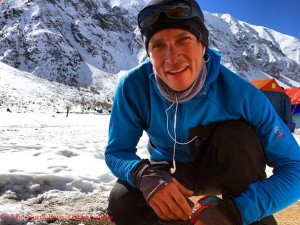

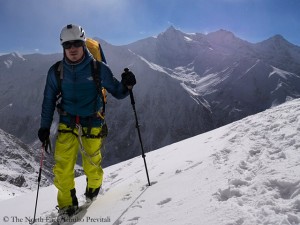
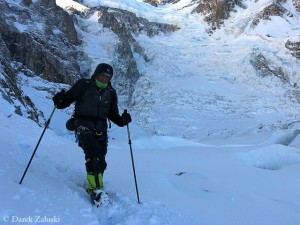
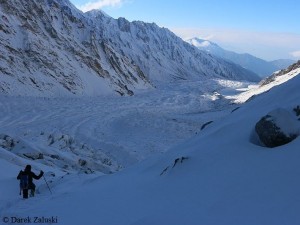
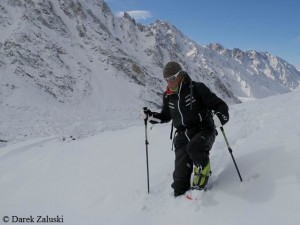
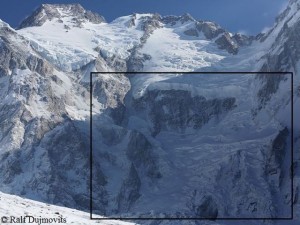
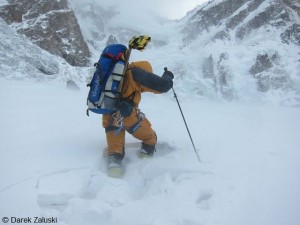
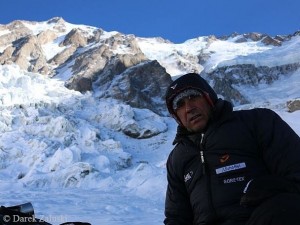
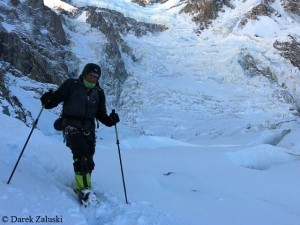
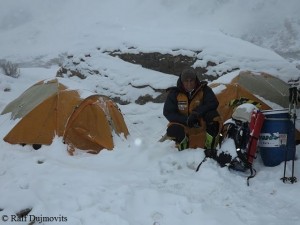
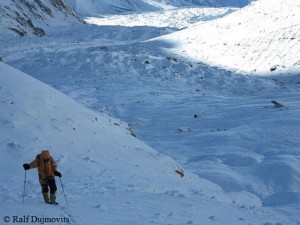
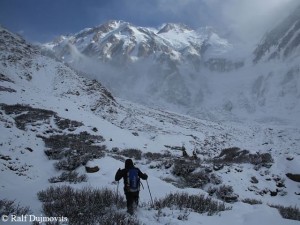
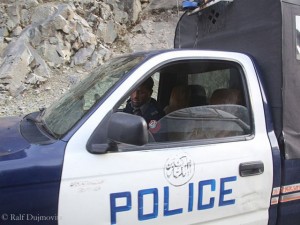
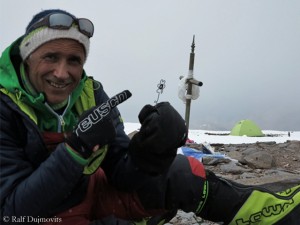
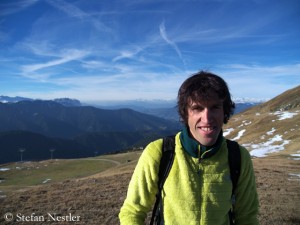




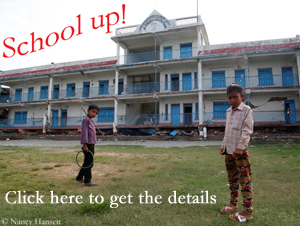
Feedback